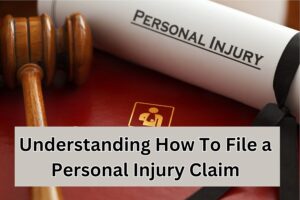When is the Right Time to Assess a TPD Claim

Uncertainties, unplanned accidents, and medical emergencies may all have a huge impact on your life. If you are the family’s single earner and are suddenly unable to work and support your family financially, it can be a difficult scenario. In such instances, you may be eligible to get a TPD.
Total and Permanent Disability (TPD) is an insurance benefit that you can claim if you are unable to return to work due to an injury or illness. Before you can file a TPD claim, you must first determine which one you are eligible for. TPD claims are classified into two types: “Any” and “Own.”
Many individuals are unaware that their TPD is generally covered by superannuation funds. Before submitting a claim, you should examine your superannuation TPD policy. You may have even bought supplementary TPD insurance through financial planners or other organisations, such as when you signed up for an Income Protection policy. If you have TPD insurance, you may be entitled to file a Total Permanent Disability claim if you meet the conditions of being unfit for work under the policy under which you have insurance.
Why should people apply for a TPD?
TPD claims are the finest option for financial security and stability. It will assist you in meeting your fundamental necessities and leading a normal life with your family. In addition, if a person is sick or bedridden, their medical expenditures are covered. The guaranteed sum is beneficial in terms of medical bills and treatment costs.
Furthermore, when you are unable to work, you are constantly concerned about your children’s school or tuition fees, which might cause stress. You can even support your children’s fees with the assistance of TPD claim lawyers, ensuring that their studies are not hampered.
How can you apply for a TPD?
Documentation
To file a TPD claim, you must have certain documents, including evidence such as an initial claim form, Certified ID, a signed authority, and two medical reports from your treating doctors, proving to the insurer and your superannuation fund that you are no longer able to work in an occupation for which you are reasonably suited by education, training, or experience due to total permanent injury or illness.
Criteria:
TPD claims are classified into two types: permanent and temporary, followed by ‘any’ and ‘own’. These claims vary depending on your disability or condition. If you are unable to return to work, for the time being, you are eligible for temporary TPD, and if you have a serious handicap that prevents you from doing any task or employment, you are eligible for permanent TPD.
The “any” TPD policy requires a claimant to be judged unsuitable to undertake any activity that may be suitable for them due to their education, training, or experience. It is insufficient to demonstrate that you are unable to conduct your own job. While the ‘own’ occupation definition is significantly easier to meet since you simply need to demonstrate that you are permanently unsuited for your own work.
Eligibility:
There could be several reasons why you are unable to work, but it is critical to know if you are eligible to file a total and permanent disability claim. Listed below are a few examples.
- Complete or irrecoverable blindness.
- Hearing loss or loss of speech
- Strokes
- Multiple sclerosis
- Cancer
- Loss of limb
- Physical separation or loss of hand, legs, or any other part of the body
The policy of eligibility may differ, therefore it is essential to consult a professional insurance lawyer or TPD specialist who can explain and determine which eligibility you fall under.
How long does it take for a TDP claim to be successful?
According to the insurers’ investigation, TDP claims might take three to twelve months. This is especially aggravating if you have already postponed filing your claim due to the extended waiting time.
Other considerations that may be evaluated include the time it takes the insurer to acquire all of the necessary documents and information in order to examine your claim and make a judgement. They may also request that you meet with an investigator. If you do not know enough about the questions you may be asked, this might be terrifying or worrisome. In such cases, if you consult a lawyer, they will assist you and prepare you for the replies ahead of time.
Why do you need a TDP lawyer to file a claim?
Carrying out the claim work might be significantly more challenging, especially if you are unwell or incapacitated. A TDP lawyer will help and support you in negotiating with the insurance company or the super funds to obtain the highest compensation.
They collect the necessary information and paperwork on your behalf, such as offer letters, pay stubs, medical bills, and so on. TDP policy varies from fund to fund, and the intricacy might be difficult to manage on your own.
Because the insurance company has its own team of investigators dedicated to identifying any loophole that prevents it from allowing them to pay, it is best to employ a specialist TDP firm that provides competitive service.
Conclusion:
So, if you have been in an unfortunate accident in which you are no longer able to support your family financially, it is advisable to seek expert help as soon as possible. It is critical to remember that the waiting time before filing a claim should be six months from your designated work.
There may be several traps that you might fall into if you do not have sufficient understanding. The ideal option is to employ skilled TPD claim lawyers who will make the entire procedure easy and stress-free for you.






